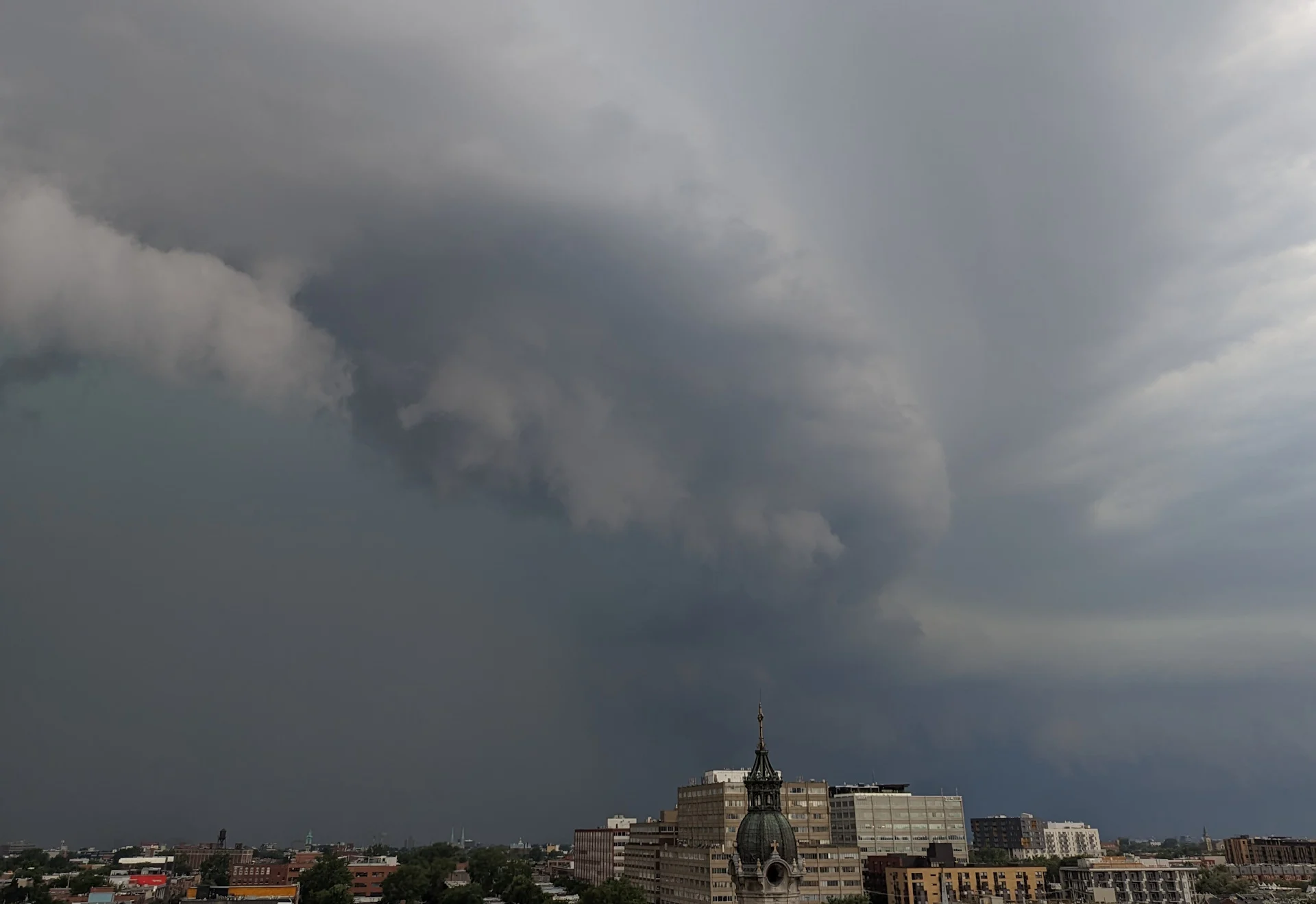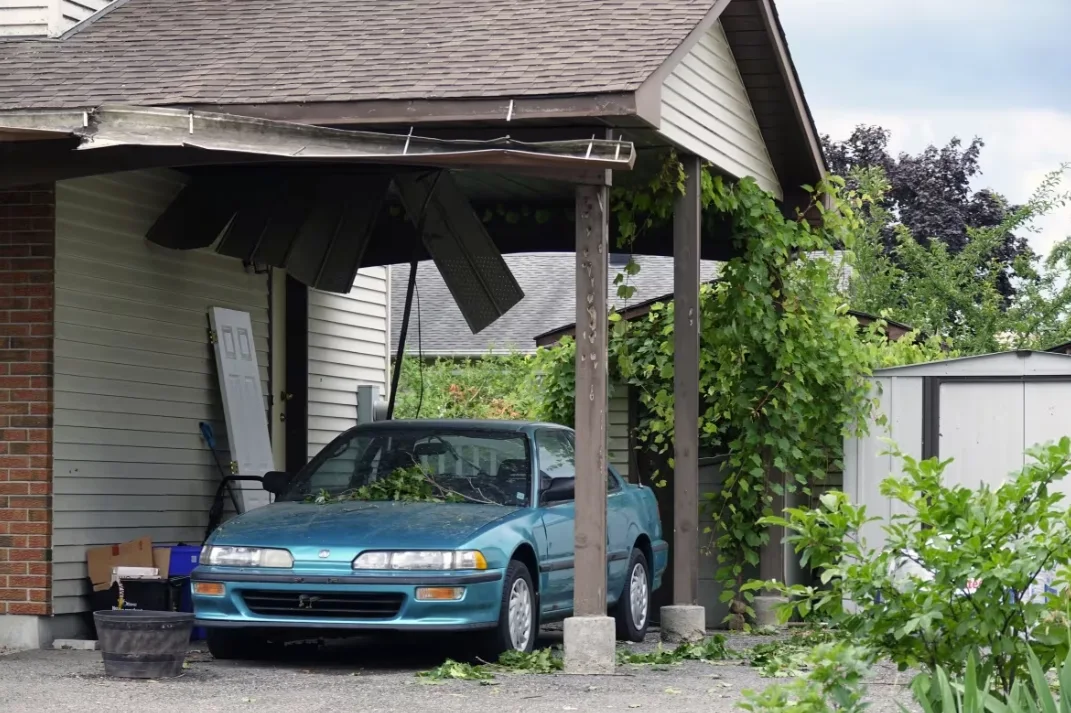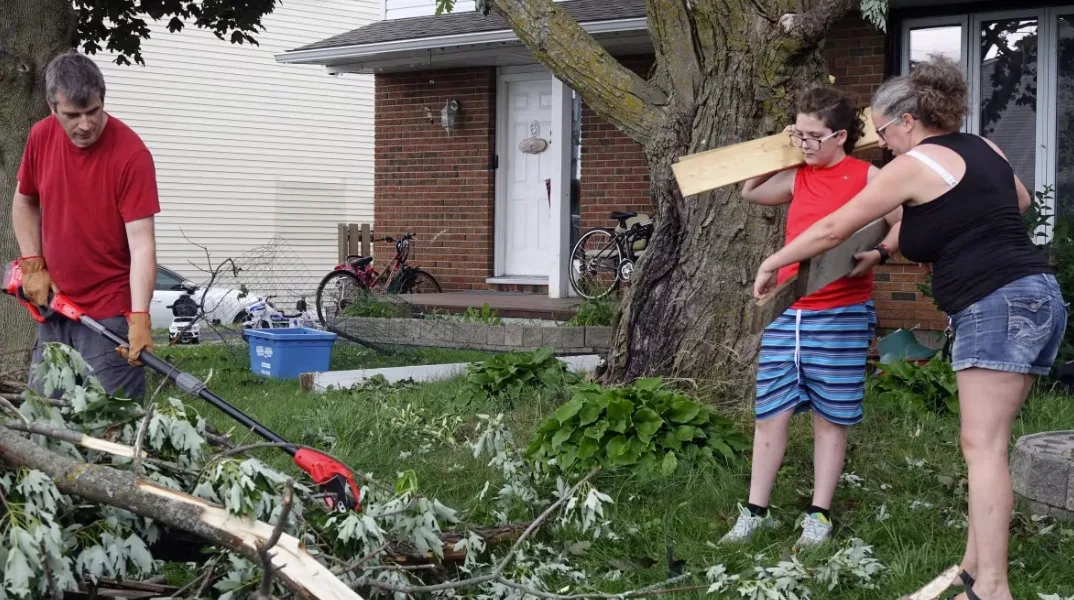
When extreme weather hits, trauma is the invisible damage
When cellphone alerts started blaring Thursday afternoon warning a tornado was coming, Jakeb Tucker and his grandmother ran for cover.
As they rushed downstairs, the 11-year-old said he heard a screeching noise and something banging in the wind.
"The house was kind of shaking, just like I was when I was down in that basement," he said.
When the wind died down and they headed upstairs they found the ground covered with tree branches, bits of siding and other debris. The trampoline that had been in the backyard was a crumpled mess near the neighbour's pool.
ALSO READ: Three tornadoes confirmed from Thursday’s storms in Ontario, Quebec
Cleanup began almost immediately, but not every kind of storm damage is so obvious.
"I felt like I was traumatized because I was so scared," Jakeb said. "My heart was beating so fast. I thought I was going to have a heart attack."

A car covered in tree branches sits below a car port that's been damaged by the tornado that hit Barrhaven, Ont. on July 13, 2023. (Dan Taekema/CBC)
In the wake of yet another extreme weather event, The Distress Centre of Ottawa and Region says it's seen a spike in calls to its 24/7 support line.
Some people are just looking for a listening ear, others don't know where to turn and are looking for someone to connect them with resources, according to Kathryn Leroux with the centre.
Natural disasters build up
With last year's derecho windstorm a recent memory for many, and a weak tornado that touched down around the southwest end of Ottawa in September, the number of natural disasters weathered locally is adding up.
"It is a buildup. It is an accumulation, especially for people who've had previous traumatic experiences," said Leroux.
"With natural disasters, there's so much unknown," she added. "People don't feel like they have a lot of control over them and that obviously leads to different reactions."
Jakeb was visiting family in Barrhaven when the tornado hit. Surveying the wreckage in her backyard Friday, his aunt Angela Lake said she's still trying to process what happened.
The family was already doing renovations. Now their list of fixes has grown to include a fence that's been splintered, shingles torn away by the wind and repairs to a recently-built pergola.

Jakeb Tucker and his aunt Angela Lake help clean up branches torn down by the tornado. (Dan Taekema/CBC)
There's also a small mountain of branches from a neighbour's tree covering the front yard.
"I'm trying to just make sure things are safe," Lake said. "It's just overwhelming. I can't even put it into words."
Check in with loved ones
Vincent Agyapong, head of the department of psychiatry at Dalhousie University, has studied how traumatic events, including natural disasters, can affect people in the aftermath.
He said some people react with disbelief, others become disoriented or struggle with anxiety.
Panic attacks can also occur, according to the professor, and some people may respond to something like a tornado by refusing to leave the safety of their basement — even after a storm passes.
WATCH: Barrhaven resident describes tornado tearing up his Ottawa neighbourhood
Agyapong helped carry out a study following the Fort McMurray wildfire in 2016. He said researchers found the most significant factor for protecting people's mental health after a natural disaster was support from family and friends.
"This is a time for people to actually rally around and support each other, rally around and support members of the community," he said.
Anyone struggling after the storm and seeking mental health support is encouraged to contact the Distress Centre of Ottawa by calling 613-238-3311 or texting 343-306-5550.
Thumbnail image courtesy of Arthur Veys/Submitted.
This article, written by Dan Taekema, was originally published for CBC News.